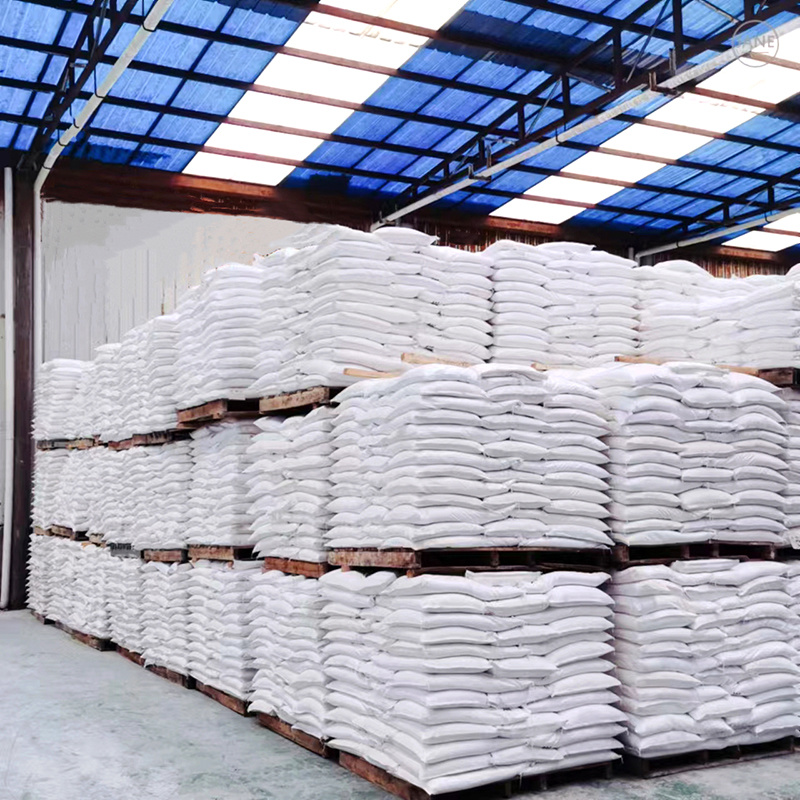How Quality Trisodium Phosphate Enhances Chemical Stability
2025-07-06
How Quality Trisodium Phosphate Enhances Chemical Stability
Table of Contents
1. Introduction to Trisodium Phosphate
2. Understanding Chemical Stability
3. Properties of Trisodium Phosphate
4. The Role of Quality Trisodium Phosphate in Enhancing Chemical Stability
5. Applications of Trisodium Phosphate in Various Industries
6. Benefits of Using High-Quality Trisodium P

How Quality Trisodium Phosphate Enhances Chemical Stability
Table of Contents
- 1. Introduction to Trisodium Phosphate
- 2. Understanding Chemical Stability
- 3. Properties of Trisodium Phosphate
- 4. The Role of Quality Trisodium Phosphate in Enhancing Chemical Stability
- 5. Applications of Trisodium Phosphate in Various Industries
- 6. Benefits of Using High-Quality Trisodium Phosphate
- 7. Regulatory Considerations and Safety of Trisodium Phosphate
- 8. Conclusion
- 9. Frequently Asked Questions
1. Introduction to Trisodium Phosphate
Trisodium Phosphate (TSP) is a versatile inorganic compound widely recognized for its diverse applications across various sectors, particularly in the chemical, food, and cleaning industries. Renowned for its ability to regulate pH levels and act as a stabilizing agent, high-quality TSP plays a crucial role in enhancing chemical stability. Understanding the characteristics and functionalities of TSP is essential for industries that rely on chemical formulations.
2. Understanding Chemical Stability
Chemical stability refers to the ability of a substance to maintain its chemical composition over time without undergoing degradation or undesirable reactions. Factors that can affect chemical stability include temperature, pH levels, and the presence of catalysts. In many applications, ensuring chemical stability is critical for product efficacy, safety, and longevity.
2.1 Factors Affecting Chemical Stability
Numerous factors can influence the stability of a chemical formulation, including:
- **Temperature Variations:** Higher temperatures can accelerate chemical reactions, leading to instability.
- **Moisture Content:** Excess moisture can lead to hydrolysis or other reactions that compromise stability.
- **Presence of Impurities:** Contaminants can initiate unwanted reactions or degrade the primary components of a formulation.
3. Properties of Trisodium Phosphate
Trisodium Phosphate is recognized for its unique properties that contribute to its effectiveness as a stabilizing agent:
- **Solubility:** TSP is highly soluble in water, making it easy to incorporate into various formulations.
- **pH Regulation:** It can effectively adjust and stabilize pH levels within the desired range.
- **Buffering Capacity:** TSP provides buffering action, which helps maintain a consistent pH during reactions.
4. The Role of Quality Trisodium Phosphate in Enhancing Chemical Stability
High-quality Trisodium Phosphate is essential for achieving optimal chemical stability in various formulations. Here’s how it enhances stability:
- **pH Stabilization:** By maintaining a stable pH, TSP minimizes the risk of chemical reactions that could lead to degradation.
- **Inhibition of Microbial Growth:** TSP's properties can help inhibit microbial growth, ensuring the integrity of products, especially in the food and pharmaceutical industries.
- **Enhancing Shelf Life:** The use of quality TSP can extend the shelf life of chemical products, providing manufacturers with a competitive edge.
5. Applications of Trisodium Phosphate in Various Industries
Trisodium Phosphate’s versatility lends itself to several applications:
5.1 Food Industry
In the food industry, TSP is used as an emulsifier, texturizer, and pH regulator, ensuring the stability of various food products. It is commonly found in processed cheeses and certain meat products.
5.2 Cleaning Products
TSP is frequently utilized in cleaning formulations due to its ability to dissolve grease and remove stains, making it a staple in household cleaners and industrial detergents.
5.3 Pharmaceuticals
In the pharmaceutical realm, TSP serves as a buffering agent, ensuring the stability and efficacy of medications by maintaining optimal pH levels.
5.4 Agriculture
TSP is also utilized in fertilizers, where it acts as a source of phosphorus, promoting plant growth while helping to stabilize other nutrients.
6. Benefits of Using High-Quality Trisodium Phosphate
Investing in high-quality Trisodium Phosphate offers several advantages:
- **Enhanced Product Quality:** Quality TSP leads to improved product consistency and reliability.
- **Increased Safety:** By maintaining chemical stability, quality TSP minimizes risks associated with product degradation.
- **Cost Efficiency:** Longer shelf life and reduced waste can lead to cost savings for manufacturers.
7. Regulatory Considerations and Safety of Trisodium Phosphate
When using Trisodium Phosphate, it is crucial to adhere to regulatory guidelines to ensure safety. Various organizations, including the FDA and EPA, regulate its use in food and cleaning products. Manufacturers must comply with these regulations to ensure consumer safety and product integrity.
8. Conclusion
Quality Trisodium Phosphate is an indispensable compound that significantly enhances chemical stability across diverse industries. Its unique properties and functionalities make it a preferred choice for manufacturers seeking to improve product performance, safety, and shelf life. By understanding the critical role that high-quality TSP plays in chemical formulations, businesses can leverage this compound to maintain competitive advantages and ensure customer satisfaction.
9. Frequently Asked Questions
1. What is Trisodium Phosphate used for?
Trisodium Phosphate is used in various applications, including food processing, cleaning products, and pharmaceuticals, primarily as a stabilizing and buffering agent.
2. Is Trisodium Phosphate safe for consumption?
Yes, Trisodium Phosphate is generally recognized as safe by regulatory bodies when used within specified limits in food products.
3. How does Trisodium Phosphate improve shelf life?
TSP helps maintain stable pH levels, inhibits microbial growth, and prevents chemical degradation, all of which contribute to extending a product's shelf life.
4. Can Trisodium Phosphate be used in organic farming?
While TSP is a source of phosphorus, its use in organic farming is subject to strict regulations. Check local guidelines for compliance.
5. What are the environmental impacts of Trisodium Phosphate?
Excessive use of TSP can lead to environmental concerns such as water pollution. It is crucial to use TSP responsibly and adhere to regulatory standards to mitigate these impacts.
This comprehensive overview demonstrates the vital role that quality Trisodium Phosphate plays in enhancing chemical stability in various applications, ensuring that businesses can optimize their products while maintaining safety and regulatory compliance.
PREVIOUS:


 TESFA STPP
TESFA STPP